What’s striking right off in this big, beautiful building is that it doesn’t have many people in it.
The roof is supported by laminated wood trusses, varnished, like the kind you see in church buildings. But this is no cathedral.
It’s a large, modern, apple receiving, storage, and packing facility designed for labor efficiency, among other goals. It packs about 85,000 metric tons (about 4.5 million bushels) of apples a year for the 396 South Tyrolean apple growers in the Val Venosta area who own this cooperative called MIVOR.
Val Venosta is a stretch of high valley on the upper Adige River that reaches from the glaciers where the river starts to apple orchards near Merano. It is considered a premier region for production of Golden Delicious.
 The co-op was created in 2007 when two other cooperatives merged to create Europe’s largest, most modern storage and packing cooperative.
The co-op was created in 2007 when two other cooperatives merged to create Europe’s largest, most modern storage and packing cooperative.
One huge storage room is devoted to rack storage, 18,000 bins of apples stored 30 bins high—and you don’t see a forklift. The bins of apples are retrieved and bought to the packing area by automated lifts and trains.
The packing area is mostly square, not a football-field length building with dozens of drops and packing areas. The reason: The apples were put into storage pre-sized and sorted. So when there is an order to fill, a bin of suitable apples is retrieved and the workers on the packing line do just that—pack.
The plant has 40 permanent employees, and 90 seasonal.
Lunch
All this was shown to growers during the International Fruit Tree Association’s study tour to Italy in November and described by director Martin Pinzger.
The tour of the facility took place just before lunch, and lunch is special. Each day, the workers take a two-hour lunch break at 11:30 so they can go home and eat with their families. The packing plant shuts down for lunch.
With the signing of a merger agreement in 2007, the MIVO and ORTLER cooperatives, both located in Laces (Latsch in German) became Europe’s largest fruit processing company called MIVO-ORTLER cooperative, MIVOR for short.
Over the about 60 years since their creation, the aim of both cooperatives was to provide common storage, processing, and sale of their members’ fruit. Both had grown and built to increase storage capacity and keep sorting facilities up to date. In 2007, the members of the two cooperatives approved a new commercialization concept and merged. Three goals were to gain market power through greater volume, reduce costs, and enforce high-quality standards from orchard to final sale.
Fruit maturity is tested before picking starts. Picking occurs in maturity zones, and growers in these zones have 18 days to pick their apples or face penalties for lower quality.
Pinzger said growers wait at most 10 minutes as they deliver their loads of fruit, usually by tractor and wagon.
All deliveries are made in plastic bins, which the co-op owns.
The packing room was rebuilt in 2008 and now has state-of-the-art technology, Pinzger said. The GREEFA sorting machine went into operation in 2011 with 10 lanes and a sorting capacity of 25 to 30 tons per hour. “A filtration plant for the purification and reuse of the water used in the process enables a responsible use of water resources,” Pinzger said.
The new automatic high shelf storage with capacity for about 5,500 tons of apples opened in 2011.
The co-op has regular atmosphere, controlled atmosphere, and DCA (Dynamic Controlled Atmosphere) storage for 85,000 metric tons of apples. Since the Europeans have banned DPA as a scald inhibitor in storage, they have adopted DCA, a new procedure in which oxygen levels in the storage atmosphere are reduced “to the point just before death” for the apples, Pinzger said.
The system relies on careful monitoring so the apples do not enter anaerobic respiration that produces alcohol.
In 2002, the whole production flow was equipped with a software program that allows the collection of important data in all production phases. “We can therefore guarantee traceability of the product from the individual packing to the delivered fruits of our farmers,” Pinzger said.
MIVOR has ISO 9001:2000 and International Food Standard (IFS) certification, and nearly all of its farmer members are EUREP-GAP certified.
Membership in the cooperative is very stable. “Ninety-nine percent joined 50 years ago,” Pinzger said.
If members increase production, they have to buy more shares and pay one-time fees of about $350 for each metric ton of fruit they plan to deliver.
The co-op must take all the fruit a member delivers, and growers must deliver all the fruit they grow. •

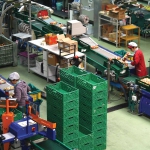
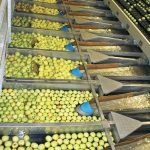
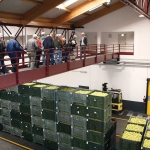
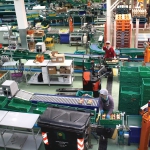
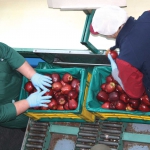
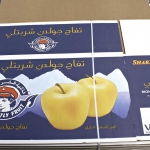
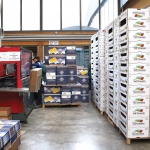
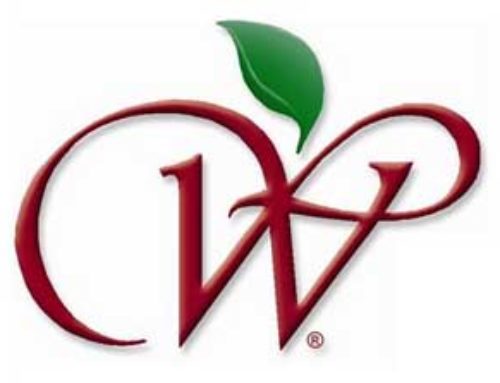



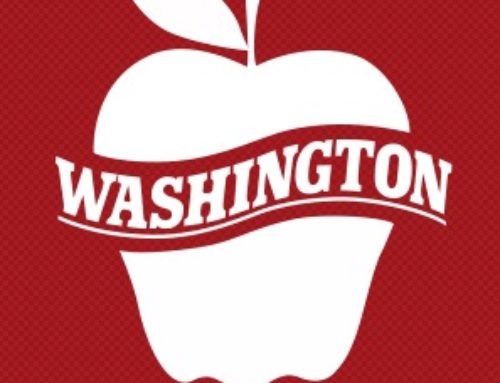
Leave A Comment